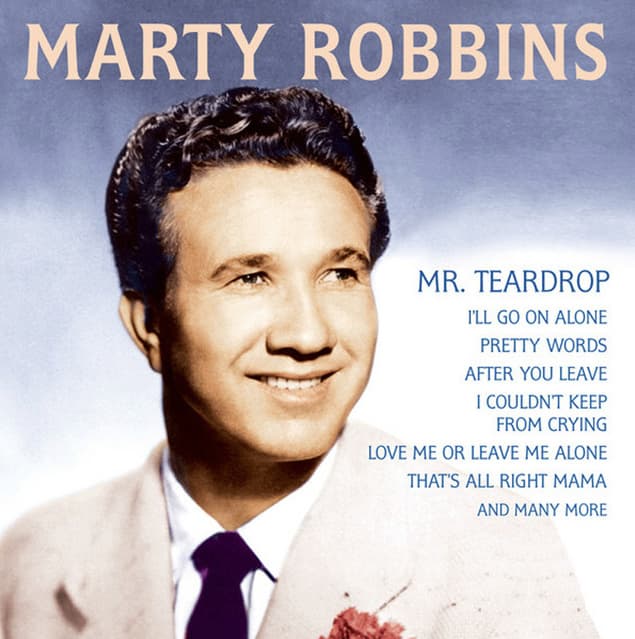
Marty Robbins – I’ll Go On Alone: A Lonesome Journey Through Heartbreak
In the tapestry of country music, where stories of heartache and solitude are woven with threads of raw emotion, Marty Robbins stands as a master storyteller. His 1952 single, “I’ll Go On Alone,” is a poignant testament to the soul-searching loneliness that follows a heart’s surrender. With its release, this song not only carved a niche for Robbins in the annals of country music history but also resonated deeply with listeners who have walked similar paths of emotional solitude.
Upon its debut, “I’ll Go On Alone” swiftly climbed the charts, reaching an impressive peak at number one on the Billboard country chart in 1952. This early success was a harbinger of Robbins’ enduring influence in the genre. The song’s ascent in the rankings was not merely due to its melodic charm but also because it tapped into the universal human experience of love lost and the resolve to move forward despite the pain.
The story behind “I’ll Go On Alone” is as captivating as its melody. Marty Robbins penned this track during a period of introspection, drawing from his own experiences and those shared with him by others. The early 1950s were a time when country music was evolving, and Robbins’ ability to capture such personal yet relatable emotions set him apart from his contemporaries. His songwriting prowess is evident in every line, each word carefully chosen to convey the depth of his solitude and determination.
The lyrics of “I’ll Go On Alone” speak to anyone who has ever stood at the crossroads of love and independence. It tells the tale of someone who chooses to walk away from a relationship rather than compromise their sense of self. This decision, while painful, is portrayed with a sense of dignity and quiet strength. The song’s narrator acknowledges the heartbreak but embraces the journey ahead with resilience—a sentiment that many older listeners might find resonates with their own life stories.
Robbins’ smooth vocal delivery adds an extra layer of poignancy to the song, drawing listeners into his world of introspective melancholy. His voice carries the weight of someone who has loved deeply and lost profoundly, yet emerges with an unwavering resolve to continue onward. It’s this blend of vulnerability and strength that has cemented “I’ll Go On Alone” as a timeless classic.
For those who lived through the era when this song first graced the airwaves, listening to it now can evoke powerful memories—of dances held in small-town halls, crackling radios in cozy living rooms, and long drives under starlit skies. It’s a reminder of simpler times when music served as both escape and companion through life’s trials.
As we revisit “I’ll Go On Alone,” we are reminded of Marty Robbins‘ profound impact on country music—a genre built on storytelling and emotional truth. This song remains a beacon for those navigating their own journeys through heartache and healing. In embracing solitude and moving forward with quiet determination, Robbins offers solace and solidarity to all who listen, making “I’ll Go On Alone” not just a song, but an enduring anthem for anyone who has ever faced heartbreak head-on.